Center
In science, the term "center" often refers to the central point or core of an object or system. It can also refer to the point around which an object or system revolves or from which it is controlled. Understanding the concept of center is important in various scientific disciplines, including physics, astronomy, and biology.
Key Concepts
- Center of Mass: The point at which the mass of an object or system is concentrated. It is the average position of all the mass in the object.
- Center of Gravity: The point through which the force of gravity acts on an object. For symmetrical objects, the center of mass and center of gravity coincide.
- Orbital Centers: In astronomy, the center of a planetary orbit is the focus around which the planet moves.
- Control Center: In biological systems, the center may refer to a control center, such as the brain or a regulatory center within an organism.
Study Guide
To better understand the concept of "center," consider the following study guide:
- Research and explain the difference between center of mass and center of gravity. Provide examples to illustrate each concept.
- Investigate how the position of the center of mass affects the stability of an object. Conduct experiments or find real-life examples to support your findings.
- Explore the role of the Sun as the center of our solar system. Describe how the planets revolve around the Sun and the significance of this orbital center.
- Discuss the importance of control centers in living organisms. Provide examples of biological systems where control centers play a crucial role in maintaining homeostasis and regulating various functions.
By engaging with these key concepts and study guide, you can deepen your understanding of the concept of "center" in science.
[Center] Related Worksheets and Study Guides:
.◂Science Worksheets and Study Guides Fifth Grade. Flowers and seeds
Study Guide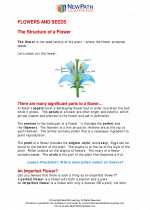 Flowers and seeds
Flowers and seeds  Activity Lesson
Activity Lesson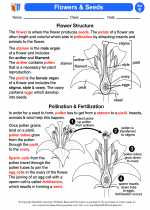 Flowers & Seeds
Flowers & Seeds  Worksheet/Answer key
Worksheet/Answer key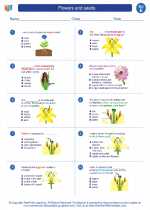 Flowers and seeds
Flowers and seeds  Worksheet/Answer key
Worksheet/Answer key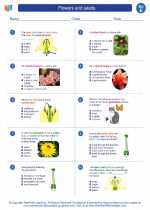 Flowers and seeds
Flowers and seeds  Worksheet/Answer key
Worksheet/Answer key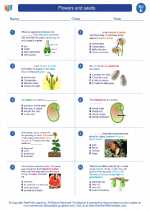 Flowers and seeds
Flowers and seeds  Worksheet/Answer key
Worksheet/Answer key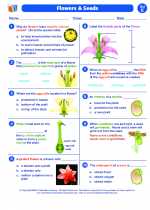 Flowers and seeds
Flowers and seeds  Vocabulary/Answer key
Vocabulary/Answer key Flowers and seeds
Flowers and seeds  Vocabulary/Answer key
Vocabulary/Answer key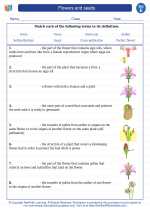 Flowers and seeds
Flowers and seeds 

 Activity Lesson
Activity Lesson
 Worksheet/Answer key
Worksheet/Answer key
 Worksheet/Answer key
Worksheet/Answer key
 Worksheet/Answer key
Worksheet/Answer key
 Worksheet/Answer key
Worksheet/Answer key
 Vocabulary/Answer key
Vocabulary/Answer key
 Vocabulary/Answer key
Vocabulary/Answer key

The resources above cover the following skills:
Life Science
All organisms have structures and systems with separate functions. Students can:
Develop and communicate an evidence-based scientific explanation of the role of different organs or structures that are important for an organism's survival - in both plants and animals